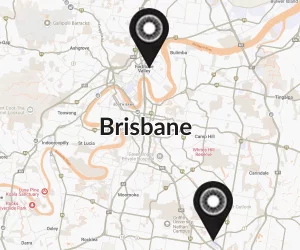See clearly again with laser cataract surgery in Brisbane
DISCOVER HOW LASER CATARACT SURGERY RESTORES YOUR VISION AND CAN GIVE YOU GREAT READING AND DISTANCE VISION WITHOUT GLASSES1Dick, H. B., & Schultz, T. (2017). A Review of Laser-Assisted Versus Traditional Phacoemulsification Cataract Surgery. Ophthalmology and therapy, 6(1), 7–18. https://doi.org/10.1007/s40123-017-0080-z
See clearly again with laser cataract surgery in Brisbane
DISCOVER HOW LASER CATARACT SURGERY AND LENS REPLACEMENT CAN RESTORE YOUR VISION AND GIVE YOU GREAT READING AND DISTANCE VISION WITHOUT GLASSES
2Dick, H. B., & Schultz, T. (2017). A Review of Laser-Assisted Versus Traditional Phacoemulsification Cataract Surgery. Ophthalmology and therapy, 6(1), 7–18. https://doi.org/10.1007/s40123-017-0080-z
WE’RE HONOURED TO BE MEMBERS OF THESE PRESTIGIOUS PROFESSIONAL ORGANISATIONS
ENJOY GREAT READING AND DISTANCE VISION WITHOUT GLASSES
Laser cataract surgery and lens replacement can treat your cataracts and dramatically reduce your need for reading and distance glasses3https://www.aao.org/eye-health/tips-prevention/traditional-vs-laser-assisted-cataract-surgery
Restore your most precious sense
With laser cataract surgery and lens replacement, we aim to remove your cataracts. This will significantly reduce, if not eliminate, your dependency on glasses – particularly for reading and distance.4All About Vision. 2021. Laser Cataract Surgery. [online] Available at: <https://www.allaboutvision.com/en-gb/laser-cataract-surgery/> [Accessed 30 June 2021].
Revitalise your energy
Many of our patients find that being free of their glasses revitalises their energy and gives them a lot of confidence they never knew they’d lost.5Amedo, A., Koomson, N., Pascal, T., Kumah, D., Ocansey, J. and Asare-Bediako, B., 2021. Quality of Life of Cataract Patients Before and After Surgery-Evidence From Four Rural Communities in Ghana. [online] Mathewsopenaccess.com. Available at: <https://www.mathewsopenaccess.com/full-text/quality-of-life-of-cataract-patients-before-and-after-surgery-evidence-from-four-rural-communities-in-ghana> [Accessed 30 June 2021].
You’ll no longer have to rummage around for your glasses just to read a menu or use your phone.
Revitalise your energy
Many of our patients find that being free of their glasses revitalises their energy and gives them a level of confidence they never knew they’d lost.6Amedo, A., Koomson, N., Pascal, T., Kumah, D., Ocansey, J. and Asare-Bediako, B., 2021. Quality of Life of Cataract Patients Before and After Surgery-Evidence From Four Rural Communities in Ghana. [online] Mathewsopenaccess.com. Available at: <https://www.mathewsopenaccess.com/full-text/quality-of-life-of-cataract-patients-before-and-after-surgery-evidence-from-four-rural-communities-in-ghana> [Accessed 30 June 2021].
You should no longer have to rummage around for your glasses just to read a menu or use your phone.
Reclaim your freedom
One of the best things about laser cataract surgery is how it can improve even the simplest things in an average day. You should no longer need to worry about how poor vision might interfere with your plans. Our patients report an easing sense of freedom and convenience.
Reclaim your freedom
One of the best things about laser cataract surgery and lens replacement is how it can improve even the simplest things in an average day. You will no longer need to worry about how poor vision might interfere with your plans. Our patients report an easing sense of freedom and convenience.
Revolutionise your life
Patients are often thrilled knowing that they’ll never have to miss out on life’s little pleasures. That can be the smile of a grandchild, the colours of the sunset, or simply getting stuck into a good book.
Revolutionise your life
Patients are often thrilled knowing that they’ll never have to miss out on life’s little pleasures. That can be the smile of a grandchild, the colours of the sunset or simply getting stuck into a good book.
HOW CATARACT SURGERY WORKS
Enjoy a life free from cataracts and glasses in 3 easy steps


Step 1: Reach out
Because there are 3 types of cataract surgery, the best way to find the right one for you is to get in touch. Give us a call on 07 3063 0732 or you can click the button to use our easy online booking form:


Step 2: We’ll meet
Visit our clinic in Fortitude Valley for a free assessment that will give you a complete understanding of your cataract surgery options.


Step 3: Enjoy life
After cataract surgery you’ll have crystal clear vision, and with laser cataract surgery you’ll also have the life-changing ability to read again without glasses7Kanellopoulos AJ. Topography-guided LASIK versus small incision lenticule extraction (SMILE) for myopia and myopic astigmatism: a randomized, prospective, contralateral eye study. J Refract Surg.2017;33:306 – 312 [online] Available at: <https://pubmed.ncbi.nlm.nih.gov/28486721/> [Accessed 21 June 2021]..
DISCOVER IF YOU CAN BE FREE FROM CATARACTS AND GLASSES
The best way to find out if laser cataract surgery and lens replacement is right for you is to have an in person assessment. There are 3 types of cataract surgery, so firstly, you’ll be assessed. Then our experts will give you a clear answer on which type of cataract surgery is best for your lifestyle.
LIFE AFTER LASER CATARACT SURGERY
Dr. Matthew Russell explains what your daily life is like after laser cataract surgery in Brisbane
LASER CATARACT SURGERY EXPLAINED
Restore your vision and reduce your dependence on eyeglasses, readers and bifocals
THE LAZY PERSON’S WAY TO LEARN EVERYTHING THEY NEED TO KNOW ABOUT VISION CORRECTION
Tired of Googling your way to understanding vision correction? We’ve got you covered! This “all-in-one” guide to vision correction options in Queensland will answer every question you have. Even the ones you didn’t think to ask! Best of all, it’s only a click away.






